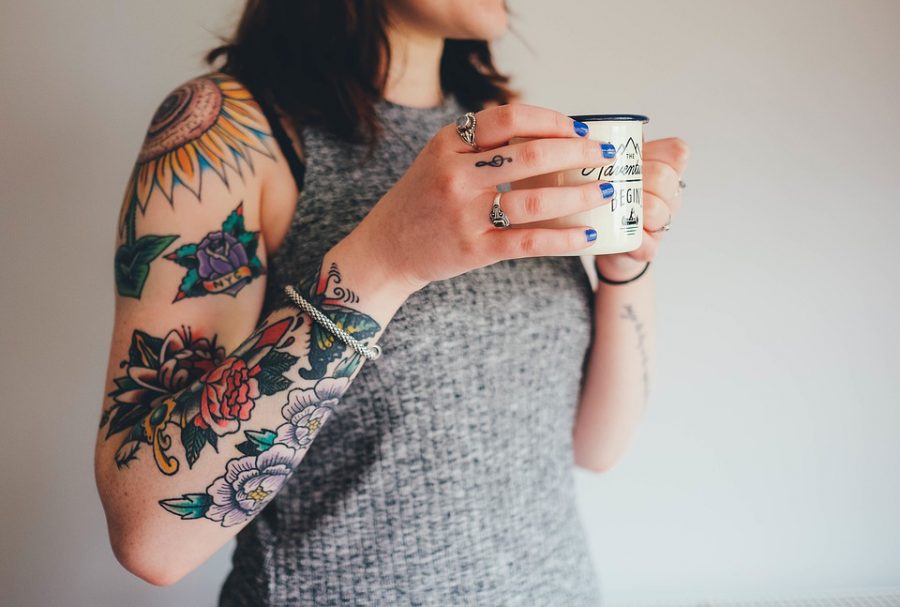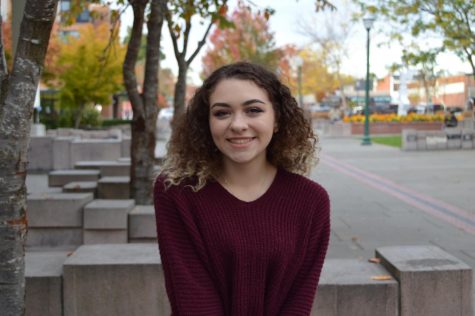People assume stereotypes only apply to issues of race or politics. Society fails to acknowledge that anyone and anything can be stereotyped and almost everyone and everything is affected by stereotypes.
As Maya Angelo once said, “We all should know that diversity makes for a rich tapestry and we must understand that all the threads of the tapestry are equal in value.”
Teen moms, recovering drug addicts, individuals with body art, members of the LGBTQ+ community–just a small list of the kinds of people that get judged every single day with just a blink of an eye.
Teenage years are already hard without getting separated into categories based on the way one looks or the prejudice people have. With today’s civilization, it is almost impossible to go out and be universally accepted.
Sometimes, it is even harder to be accepted if one does not fit into society’s view of “normal.” Ohio resident and recent teen mom Bree Adkins explains how being in her position of having a child while in high school contributed to her not feeling like a normal kid.
“You have to say goodbye to your social life for a few months, you lose people that considered themselves to be your friends and you cannot do as much as you used to be able to do,” Adkins said.
One’s social life directly relates to mental health among other things
“Evidence has been growing that when our need for social relationships is not met, we fall apart mentally and even physically,” John Cacioppo said in a Psychology Today article.
The things people say can affect one’s emotions as well.
“Being stereotyped makes me upset. They do not know the real me and it hurts knowing that I am being judged by someone who does not even know me,” Adkins said.
High school is a place where social lives are very important and people are most commonly judged for how they act and their appearance. People in the LGBTQ+ community are judged daily just because of who they are.
High school students are not always the only ones to make prejudiced comments or treat people differently. Florida resident and LGBTQ+ community member Connor Uliasz talks about how teachers can also be judgemental.
“I am not there to be gay or straight, I am there to learn,” Uliasz said. “It makes you stick out and I do not enjoy that kind of attention.”
There are lots of stigmas surrounding the idea of what is professional versus what is unprofessional. There is such a wide variety of people roaming around the world, it is rare to see someone that does not have something unique about them.
Internet personality and model Keerah Mortensen, stage name Kitty Quinn, said that tattoos should not be seen as unprofessional.
“I think me having tattoos and piercings will make my kids more accepting of other people with tattoos and piercings,” Quinn said. “People need to accept that if everyone looked the same, the world would be very very boring.”
Tattoos and piercings are more commonly seen as “unprofessional” and can sometimes be thought of as attention-seeking. For someone who has spent hundreds to possibly thousands of dollars on permanent body art, these stereotypes can be offensive.
“No one is going to have enough employees without tattoos and piercings,” Quinn said. “I do not feel like decorating your body should be seen as unprofessional.”
Millions of people are impacted by stereotypes every day. The human race has always naturally categorized people, it is something no one can control. It is human instinct to make blanket statements to organize others into a group.
“It is our way to assess a large amount of people in a small amount of time,” Uliasz said. “It is easier than getting to know every single person individually.”
Being judged based on the way one looks, the way one acts or who one hangs out with can hurt.
“It is kind of like, “oh, that is how you think of me” or that is how I am supposed to be in your eyes,” Uliasz said. “It feels like there is an expectation that I am not meeting.”
Uliasz explained that it is hard for some people to feel accepted in the world today, no matter what someone does it is difficult to completely fit in. Whatever one does, someone always has an issue with what someone else does, how they act or even how they look.
“I feel like we should just accept people for who they are and accept the differences that everyone has and the choices everyone makes for themselves,” Quinn said. “I think the most accepting people are very small children.”





